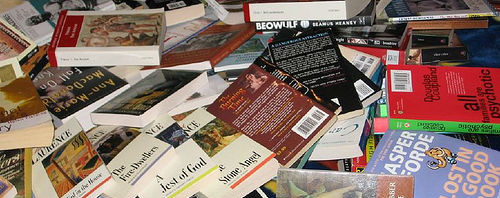Over the past few years, we’ve watched the Millennial generation influence the rest of the world by a Millennial Mindset®. What that means is, Millennials are shaping the way older and younger generations think, act and consume. The most obvious example is Millennials and technology. Millennials are over 2.5 times more likely to adopt new digital, mobile and social technologies. This rapid adoption has spread far beyond the Millennial generation and has influences much older consumers as well. As we watched Millennials embrace digital and mobile devices, it seemed obvious that electronic books (E-books) would be the future of literature and the “written” word. However, you might be surprised at what we found when taking a closer read.
In October of 2012, the Pew Research Center Released a study that gives a magnitude of interesting data relating to how Millennials use alternate forms of reading, such as electronic books or audiobooks, and it compared a lot of this data to non-Millennial trends. While the results were not particularly eye-opening, they give great insight into a huge market and spark questions on the relevance of E-books for Millennials in the future. The bottom line is that while paper books are still overwhelmingly favored among Millennials, E-books present a competitive alternative that could take over in the future.
The book industry as a whole is extremely relevant among Millennials, even more so than other generations. Pew’s study found that 83 percent of Millennial Americans have read a book in the past year, and 60 percent been to the library. This is largely due to the fact that while Millennials enjoy reading for pleasure and current events almost as much as older generations, their use of books for work or school related purposes is nearly double that of their elders. It is important to note, however, that this trend is quite possibly reflective of Millennials’ age, as the majority of younger Millennials are still in school. After all, the study did find that college-aged kids are especially likely to use the library.
 Regardless of whether or not this growing trend is age-sensitive, such a large market presents rich opportunities for further innovation in the book sector. Taking into account the study’s findings that specifically Millennials are driven to engage more with books and libraries due to their interest in mobile technology, this would be the perfect generation to target to for E-books and and other alternatives to paper because this factor, unlike an increase in school-related reading, is not age-sensitive. Rather, it fits in perfectly with some of the biggest overall themes of Millennials: tech-savvy and willing to try new things.
Regardless of whether or not this growing trend is age-sensitive, such a large market presents rich opportunities for further innovation in the book sector. Taking into account the study’s findings that specifically Millennials are driven to engage more with books and libraries due to their interest in mobile technology, this would be the perfect generation to target to for E-books and and other alternatives to paper because this factor, unlike an increase in school-related reading, is not age-sensitive. Rather, it fits in perfectly with some of the biggest overall themes of Millennials: tech-savvy and willing to try new things.
With that being said, E-books are not the norm for this generation. In fact, an overarching majority of Millennials still prefer traditional paper books. Pew’s study found 75% of Millennials read paper books compared to only 19% who read electronically. Which, surprisingly, is not too far off from the 11% who listen to audio books. So what does all this mean? In short, the market has a long way to go, and there are still plenty of opportunities to engage Millennials. The task? Figuring out why Millennials still like paper and how to switch them to alternatives.

Whether it’s the feel of paper on the fingertips or the relatively inexpensive price comparedto a Kindle, traditional books clearly still hold appeal. Instead of trying to take that appeal away, it’s smarter to focus on what’s more appealing about alternative forms of reading. Here are some thoughts:
-
Over 60% of Millennials used the library last year, yet most Millennials didn’t know that they could borrow an E-book while they were there. Awareness alone is a huge factor that could lead to future growth.
-
Lack of availability of electronic versions of books creates a chicken and egg scenario: People are less motivated to buy E-readers because of the lack of content, but the lack of content could be due to the lack of E-reader purchases. This cycle of slow growth is just waiting for a solution.
-
Lastly, the market may not be in E-readers at all. Considering older generations are twice as likely to use E-readers and almost half as likely to use their cell phone, focussing on cellular books could be the next big concept.
Overall, with 40% of Millennials saying that “they now spend more time reading than they used to due to the availability of e-content,” it is clear that the opportunity for alternative forms of reading is a huge market that has tons of room for development. By finding the strategy to attract a generation of people such willing to try new things, the possibilities are limitless.
Scott Fromm contributed to this post.
Photo credit: Flickr via Jennerally & srharris


